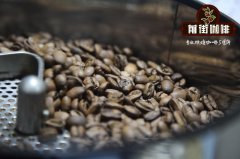The fresher the coffee the better? How to Eat Fresh Coffee Beans_Fresh Coffee Bean Price Report

Professional coffee knowledge exchange more coffee bean information please follow the coffee workshop (Wechat official account cafe_style)
The more fresh the coffee beans are, the better they must be. Must fresh coffee beans taste better?
●
Generally speaking, people often talk about the saying that the fresher the coffee is, the better. But the truth is not so black and white. As soon as the raw coffee beans are roasted, two opposing forces begin to wrestle to determine when the coffee will be at its peak. These two forces are exhaust and oxidation, respectively.
●
Exhaust means that freshly roasted coffee beans release carbon dioxide accumulated inside. In the first week after coffee roasting, carbon dioxide is discharged at a particularly intense and rapid rate. So why is carbon dioxide emissions such a headache for baristas? There are two reasons. First of all, in the first week after baking, because the coffee beans are particularly intense in removing carbon dioxide, the state of the coffee beans will be very unstable like a beast that does not want to be domesticated, which can easily lead to uneven extraction, difficult to predict the cooking process, and the loss of consistency. Any barista who has ever tried to use too fresh coffee beans to produce espresso should have faced this dilemma. No matter how hard you try to control the grinding degree, the water temperature ratio, the state of the extracted coffee will be very unstable, today and tomorrow will be different, morning and afternoon will be different, or even two cups in a row can be different. It is basically an impossible task to make an extraction scheme in this case.
●
The second reason we don't like carbon dioxide is the effect of this gas on flavor. When brewing coffee that is too fresh, some of the characteristics of the beans, such as the origin and the unique flavor of the variety, may be weakened or masked by carbon dioxide. When you drink it, you may not taste a very clear flavor, the sweetness may become incomplete, and the whole sensory experience will feel a little uncomfortable.
●
So, a few days after roasting, the coffee is not really at the peak of its freshness or flavor, which is why you need to let the beans rest and exhaust for a while before brewing. So how long will it take to raise beans? To find the answer, we must talk about the second force: oxidation.
●
The oxidation of coffee beans begins as soon as the beans leave the roaster. What is oxidation? It is a force that can rust metal, spoil food exposed to the air, and make coffee lose its flavor. In short, oxidation is a bad thing.
●
Grinding coffee beans into powder will greatly increase the surface area of coffee in contact with the air, which will greatly speed up the oxidation process. That's why, as long as you have a good grinder, you should definitely choose to buy whole beans instead of ground coffee powder when you buy coffee.
●
So what is the relationship between these two opposing forces, exhaust on one side and oxidation on the other, with the best freshness and peak flavor of coffee beans?
●
Basically, we can use such a bell graph to illustrate the best taste period for coffee. In the first few days after baking, you should let the coffee be quiet, wait for the full emission of carbon dioxide, do not rush to brew it, because it has not yet entered the state suitable for extraction. Take the coffee baked in our shop as an example, the general bean raising period is 0-5 days. We try not to touch beans that have been exhaust for less than six days because they are not stable at all.
●
Beans after intense exhaust, but before being over-oxidized, we entered this period of coffee at its best. The product at this time is the best, because the beans are brewed in a stable state and extracted evenly, so you can make a cup of coffee with high sweetness, rich layers and clear flavor. If they are our beans, their golden age is 6-14 days after baking. It is worth noting that the peak period of coffee is longer than many people realize. Many people think that coffee only tastes good for two or three days, but not for the rest of the time. We do not agree with this view. As long as you store the coffee beans in the right way-in a sealed coffee bag, in a cool, dry place-the golden period of the coffee is at least ten days a week, anyway, there will be enough time for you to drink up that bag of 12 oz coffee beans, unless you make a cup in three or four days. And if you are really like this, my God, you are in Gaha, drink more coffee!
●
Well, when we come to this period of 15-30 days after baking, the effect of oxidation becomes a bit obvious. However, this does not mean that the coffee will suddenly become so bad that it can not be drunk. It is still possible, but some subtle layers or flavors may disappear, such as the characteristics of the variety and some particularly wonderful flavors will be weakened. It will probably not be very rich, amazing, sweetness will also be reduced, although it will still be a good cup of coffee, but that's all, just a good cup of coffee.
12 ●
After 30 days of baking, the effect of oxidation will be very obvious. The taste of coffee will become mediocre, and you will easily detect something stale, such as cardboard or paper. At this time, you can probably give the coffee to your "friends" who you don't like very much.
●
So, to sum up briefly, the ups and downs of roasted coffee beans look something like this.
●
Different factors will have different effects on this graph. For example, coffee beans that are more deeply roasted will oxidize faster than lightly roasted coffee, so the wonderful flavors you taste during the prime period may disappear more quickly. What if they are very deep-baked beans? Although these coffee beans are oxidized faster, you may not be able to taste the effects of oxidation, because what you drink is still a strong carbon-roasted taste. Since the deep-baked beans do not have any detailed flavor or variety characteristics from the very beginning, the aging effect on the taste will not be too obvious. That's why instant coffee brands like Folgers taste about the same today as they did three months ago.
●
So, the conclusion we can draw is that if you want to make the best extraction and make the most delicious coffee, the fresher it is, the better. You need to cultivate beans patiently so that they have enough time to emit some carbon dioxide, but at the same time, you can't wait too long, otherwise the beans will age and deteriorate when they are overoxidized.
● fresh coffee bean brand recommendation
Qianjie coffee freshly roasted single product-Italian fresh coffee beans: Yega Sheffield Coffee, Brazilian Coffee, Manning Coffee and so on are fully guaranteed in brand and quality, suitable for brewing with all kinds of utensils. And more importantly, the performance-to-price ratio is extremely high, a pack of half a pound 227 grams, the price is only 80-90 yuan. According to the calculation of 15 grams of powder per cup of hand-brewed coffee, 15 cups of coffee can be made in a bag, and each cup of coffee costs only about 6 yuan, which is very cost-effective for the normal price of 30 or 40 yuan a cup in a cafe.
Qianjie coffee: Guangzhou bakery, the store is small but a variety of beans, you can find a variety of unknown beans, but also provide online store services. Https://shop104210103.taobao.com
Important Notice :
前街咖啡 FrontStreet Coffee has moved to new addredd:
FrontStreet Coffee Address: 315,Donghua East Road,GuangZhou
Tel:020 38364473
- Prev

What is the production and marketing of Burundian coffee? How would you like your Burundian coffee? How does Burundian coffee taste?
Professional coffee knowledge exchange more information about coffee beans Please follow the production and marketing experience of coffee workshop (Wechat official account cafe_style) until recent years, every wet treatment plant under SOGESTAL has mixed raw beans. Many coffees from Burundi can only be traced back to their respective SOGESTAL, that is, their areas of origin. Since 2008, Burundi has begun to transform into a boutique coffee industry.
- Next

How to judge whether the coffee beans are fresh _ will the fresh coffee beans produce oil _ how to preserve the fresh coffee beans
Professional coffee knowledge exchange more coffee bean information Please pay attention to the coffee workshop (Wechat official account cafe_style) recently, due to participate in some coffee activities, bought several beans are piled at home, causing the family to stock up a little more. It is rare to hide at home today, so I decided to wipe out some of the inventory. So he took out a bag of coffee beans that had been opened a month ago, only to find that it was released.
Related
- Detailed explanation of Jadeite planting Land in Panamanian Jadeite Manor introduction to the grading system of Jadeite competitive bidding, Red bid, Green bid and Rose Summer
- Story of Coffee planting in Brenka region of Costa Rica Stonehenge Manor anaerobic heavy honey treatment of flavor mouth
- What's on the barrel of Blue Mountain Coffee beans?
- Can American coffee also pull flowers? How to use hot American style to pull out a good-looking pattern?
- Can you make a cold extract with coffee beans? What is the right proportion for cold-extracted coffee formula?
- Indonesian PWN Gold Mandrine Coffee Origin Features Flavor How to Chong? Mandolin coffee is American.
- A brief introduction to the flavor characteristics of Brazilian yellow bourbon coffee beans
- What is the effect of different water quality on the flavor of cold-extracted coffee? What kind of water is best for brewing coffee?
- Why do you think of Rose Summer whenever you mention Panamanian coffee?
- Introduction to the characteristics of authentic blue mountain coffee bean producing areas? What is the CIB Coffee Authority in Jamaica?

